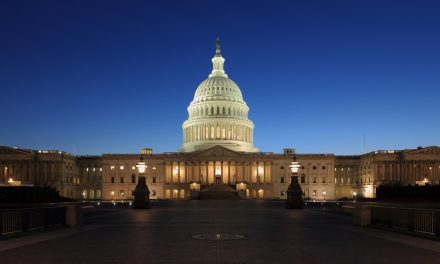From January, 2017 through January 2019, the U.S. Senate confirmed thirty appellate judges, a record. Adding two Supreme Court justices and district court nominees into the mix, a total of 85 judges were confirmed. That’s the good news.
The bad news is that because of Democratic obstruction in the Senate, there are more judicial vacancies to fill now (162) than when the President took office (125).
Senate Democrats have declared a scorched earth policy against the President’s nominees. While they don’t have the votes to outright defeat judicial nominees – Republicans hold a 53-47 seat advantage – they are invoking every procedural tool available to slow down the confirmation process.
At the end of early January, as the 115th Congress ended, 71 judicial nominations remained pending. If cooperation and good will existed at all, both parties in the Senate would simply agree to carry over the pending nominees to the new 116th Congress, which would eliminate the need for those nominees to begin the Judiciary Committee process again. Democrats didn’t cooperate, and so those nominations were “returned” to the White House, only to be sent back to the Senate as re-nominations. The net result is wasted time and delay.
There was one noticeable hiccup in the re-nomination process, however, that conservatives quickly picked up on, involving three nominees to the 9th U.S. Circuit Court of Appeals, the notoriously liberal appellate court located in California that covers nine western states plus two territories. Those three nominees weren’t re-nominated along with the rest, and speculation began that the White House was negotiating with the two Democratic California senators, who were demanding at least one nominee of their choice. Within 24 hours of online conservative dismay surfacing over this possibility, the White House re-nominated two of the three judges plus a third conservative to those seats, as California’s two senators complained and promised further obstruction.
Besides obstruction, the smear tactics of Democratic senators on the Senate Judiciary Committee have become extreme. Although millions of viewers witnessed the defamatory and incendiary antics coming from the Democratic side of the committee dais during the confirmation hearings for Supreme Court Justice Brett Kavanaugh, it is less well known but of equal concern that some of those same senators have questioned nominees’ religious faith or membership in faith-based organizations. That is a dangerous trend and violates the spirit, if not the letter, of Article VI of the Constitution concerning religious tests for office.
As the 116th Congress begins with a Republican-controlled Senate and a Democrat-controlled House, there is little hope for any agreement on much-needed legislation, as the recent partial government shutdown over funding for a border wall evidences. However, the Senate’s Republican majority has a unique chance to focus on confirming as many constitutionalist judges as possible, even in the face of Democratic obstruction.






